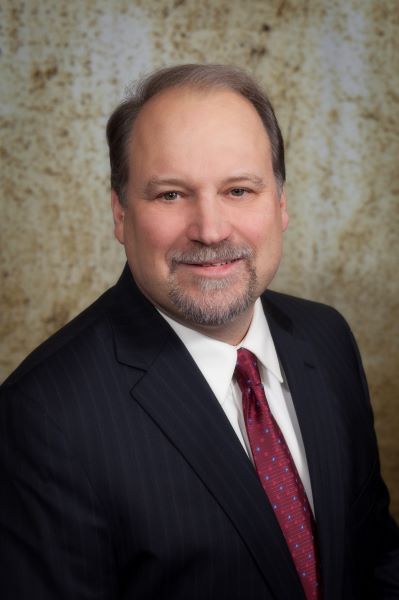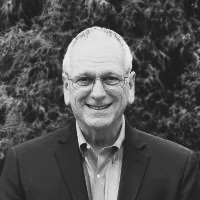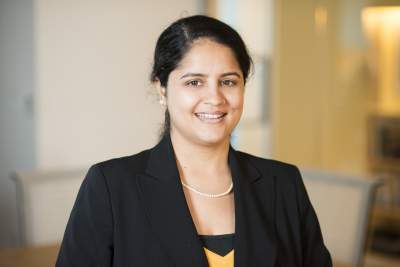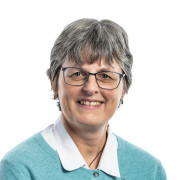Back to the AGI Connections Index
AGI Connections - Fall 2023
Explore AGI Federation Activities in the Latest Issue of AGI Connections
The newsletter highlights AGI news and upcoming events from across the geoscience federation. Help us share important geoscience events by contacting Geoff Camphire
In This Issue
- Leadership Forum Focuses on Guiding Policy
- Free Course Promoting Impactful Geoscience Communication
- Partnerships Promote Education for Sustainability
- Webinar Forums Unite International Community
- GeoRef Thesaurus Aids in Choosing, Using Terms
- New From AGI
- Geoscience Event Calendar
- Subscribe
Leadership Forum Focuses on Guiding Policy
Recognizing that geoscientists’ vital expertise can strengthen policy making and that guidance must be framed in a way that policymakers can use, dozens of geoscience leaders discussed a wide array of priorities - and an innovative new compositional structure - for the upcoming Critical Needs Document during the AGI Leadership Forum conducted virtually on February 15, 2023.
Every four years, AGI’s Member Societies come together to develop a shared statement on the critical needs for society that the geosciences can directly address. This overview of critical issues and policy recommendations, commonly known as the Critical Needs Document, is provided to presidential campaigns, federal agencies, and key congressional committees and members with related interests. Leadership Forum participants discussed a new strategy to make the planned 2024 document more relevant than ever.
The 2024 Critical Needs Document will not - in the way that previous iterations did - identify topics as typically articulated by geoscientists, such as geologic hazards, energy, and water. Instead, the document will frame issues in terms that Congress frequently addresses, such as the economy, hazards and wellbeing, infrastructure, national security, and innovation. Having pinpointed these key topics of policy, the document will go on to explain how geoscience offers important perspectives and solutions.

“Our current effort in preparing the Critical Needs Document will try to weave the important role the geosciences play into general topical areas that encompass the most common issues that are likely to be in the focus of the executive branch and members of congress,” said AGI Past-President David Wunsch, who chairs the document committee. “For example, a major issue such as food security involves several facets of the geosciences, such as soil science for understanding and conserving agricultural soils, mineralogy for developing raw materials for fertilizers such as potash, availability of water resources for irrigation, and fuels for transporting food products. The key will be identifying these facets of geoscience and incorporating them, and their relevance, into a document that is both interesting and engaging to our intended audience.”
“The geosciences play a foundational role in providing the materials to meet the modern world’s needs, while also providing a critical understanding of Earth’s systems to best manage and protect our resources,” Wunsch added. “We currently have 18 members representing a broad cross-section of AGI Member Societies on our committee, and we are in the process of rolling up our sleeves and putting that brain trust to work.” The committee is asking AGI Member Societies for case studies illuminating real-world instances where geoscience has been brought to bear effectively on such issues.
The Leadership Forum is an event hosted annually by AGI. Learn more online about Collaborative Leadership in the AGI Federation and additional AGI membership benefits. To learn more about the 2024 Critical Needs Document, contact AGI Geoscience Profession and Higher Education Director Christopher Keane.
Free Course Promoting Impactful Geoscience Communication
Early indications suggest that a free geoscience communication course, first offered to members of AGI Member Societies by AGI with generous support from the American Association of Petroleum Geologists Foundation (AAPG-F) in March, is having an impact. So far, more than 770 geoscientists from 26 societies have enrolled in the Practical Communications course presented by Geologize LTD, a professional training provider endorsed by leading geoscience organizations around the world.
“Effective communication of geoscience to the public, policymakers, and stakeholders is vital to addressing societal issues,” AGI Executive Director Jonathan Arthur said. “To tackle emerging challenges - whether confronting misinformation, building public understanding, boosting enrollments, or strengthening the professional workforce - we must equip geoscientists to communicate efficiently and engagingly in a variety of settings, including classrooms and social media.”
Practical Geocommunication prepares geoscientists at all career stages to become compelling ambassadors for their field. The flexible, on-demand format allows participants to progress at their own pace, accessing lessons, quizzes, assignments, and having direct interaction with the course instructor, Dr. Haydon Mort, CEO of Geologize LTD. Successful completion of the course earns not only nine hours of Continuing Professional Development but also a certificate of completion.

“There is a strong need to share the ideas of the geosciences with the general public in a simple way,” said Anmol Vishwakarma, an AAPG member, on LinkedIn recently. “The course effectively addresses the urgent need to share geoscience knowledge with the public in an easily comprehensible way.”
“I highly recommend this course, as it reveals the flaws in geoscience’s approach to [the] general public and consequentially missed opportunities to communicate to non-experts properly,” said Carson Rittel, a Geological Society of America member. “I … recommend it to all geoscientists. Even more, to all scientists!”
AGI Member Societies are inviting their members to take advantage and are seeing rapid results. When the Society of Exploration Geophysicists invited members to participate, a record-breaking 118 members signed up in less than 24 hours. Mort noted that members from Africa are particularly grateful for the opportunity, calling the AGI license a “powerful tool for access in many developing countries.” Some AGI Member Societies, like the National Earth Science Teachers Association, are considering leveraging this free course, valued at $400, as an incentive to attract new members. This free training opportunity is available free until early 2024. AGI is distributing instructions to Member Societies. If you are a member, expect to receive this information from your society. If you have not yet received instructions, see the Practical Geocommunication website to locate your membership portal or an appropriate point of contact in your society.
Partnerships Promote Education for Sustainability
As communities worldwide strive to promote sustainability, geoscience societies are looking to AGI to help them advance understanding and action toward sustainable development. A partnership between The Society of Exploration Geophysicists (SEG) and AGI’s Education and Outreach Department, for example, has collaboratively developed instructional materials highlighting connections between SEG’s Geoscientists Without Borders®"(GWB) program and the United Nations’ 17 Sustainable Development Goals (UN SDGs). One item, a poster, illustrates how GWB projects around the world connect to UN SDGs for clean water and sanitation, education, gender equity, and sustainable communities. Another is designed to focus children’s attention on ways that community members work together to support UN SDGs.

The UN SDGs are at the foundation of several of the projects that the department has undertaken recently and was the focus of the theme for Earth Science Week 2022, “Earth Science for a Sustainable World.” In many instances, partner organizations have an interest in supporting locally meaningful educational experiences around specific geoscience topics for young people, their teachers, and members of the public. AGI Education and Outreach staff work with those organizations to develop and disseminate instructional resources on those topics, shaping them in ways that align with instructional standards and practices, while also making the underlying science accessible to learners.
“Because SEG recognizes the importance of spreading awareness of geophysics career paths among students from an early age, we partnered with AGI to promote geophysics education in K-12 education,” said GWB Program Manager Pallavi Bharadwaj. “These posters, for instance, aid teachers and students by offering ideas for classroom activities like building models and asking questions to get involved in understanding and solving some of the world’s biggest challenges. Through these efforts, we are working to inspire the next generation of geophysicists and promote the importance of geophysics in addressing global challenges.”
“This partnership helps the GWB program to join our efforts and access AGI’s wide network,” Bharadwaj added. “SEG and AGI are providing valuable resources to teachers and students by developing activity sheets, posters, webinars, and other educational materials. These resources help introduce geoscience concepts and career paths to students early, which can significantly impact their academic and career trajectories.”
For another project focused on the SDGs, AGI education specialists worked with SLB Excellence in Educational Development (SEED) to design four Next Generation (NextGen) SEEDKits, each with activities that use hands-on, data-focused, project-based instructional models. Those NextGen SEEDKits - which address UN SDGs for water, energy, consumption and production, and climate action - are in initial pilot testing phases in Ecuador, which has a thriving SEED program in classrooms and extra-curricular settings, including several for which AGI staff have provided on-site professional development workshops.
AGI is incorporating sustainability in additional projects and initiatives including its “Strategy for the Future” 2023-2026 Vision Statement and Strategic Plan, GeoRef, and the 2023 Earth Science Week theme, “Geoscience Innovating for Earth and People.”
Learn more online about Earth Science Week and other programs of AGI Education and Outreach. To discuss how AGI can support your organization’s sustainability-related education efforts, contact AGI Education and Outreach Director Edward Robeck. To learn more about other AGI sustainability initiatives, contact Executive Director Jonathan Arthur.
Webinar Forums Unite International Community
When the World Community of Geological Surveys (WCOGS) set out to sponsor online forums for leaders of national and regional Geological Survey Organizations (GSOs) and regional geological associations spanning the globe, WCOGS found a ready, willing, and able host for those events in AGI. The Institute was a natural choice to host three international webinar series in recent years, said Gill Jolly, Natural Hazards and Risks Theme Leader of GNS Science in New Zealand. “For all three of those series, we wanted to reach across time zones around the globe, produce something that was very organized and professional, and create a worthwhile experience for participants,” added Jolly, who served on the organizing committee for one of the forums. “We had lots of confidence that AGI could deliver what we needed.”

The most recent WCOGS webinar series, Disaster Risk Reduction: The Role of Geological Survey Organizations in Understanding Risk and Informing Risk Reduction Actions, was organized through a collaboration of WCOGS, the Global Earthquake Model Foundation, the Geological Survey of Canada, and GNS Science. Recognizing GSOs as vital to understanding geo-hazards and creating disaster risk management policies and programs, the forum provided an overview and three virtual workshops on the role of GSOs in disaster risk reduction at the national level, including strategies, awareness, advocacy, financial risk management, building codes, and early warning systems. The webinar series was structured as a set of three regional sessions, each featuring pre-recorded lectures by science policy experts and geoscientists and a live moderated discussion with attendees. All sessions were conducted in English with live captioning in French, Spanish, Portuguese, Russian, Modern Chinese, and Arabic.
WCOGS also sponsored two additional webinar forums hosted by AGI in the past few years: Responding to Societal Needs With 3D Geology: An International Perspective and Advances in Critical Mineral Research: A Forum in Memory of Victor Labson.
AGI provided the expertise and skills needed to further WCOGS’s objectives. “With the Disaster Risk Reduction series, for example, we were aiming to share good practice globally and connect a community of practice among the relevant organizations,” said Jolly. “In terms of meeting our goal of building community of practice, we felt like that event did a really great job. AGI offered experience, knowledge, and advice. Another key component was the network that AGI has, a unique ability to get the word out to engaged audiences internationally.”
In addition, the Geological Survey of Canada was pleased with AGI’s professionalism in hosting the disaster risk reduction sessions, said Director Sonia Talwar. She especially noted that AGI ensured the pre-recorded videos were made available post-event via YouTube to promote broad reach of the content.
“We’d like to maintain the momentum we’ve built up,” added WCOGS’s Jolly. “One of the key outcomes has been the connections we’ve seen among countries with shared experiences. Often people are willing to share the good stories but not the stories about challenges they faced, and we heard both. There have been some great, open conversations among diverse groups of participants — from a mix of developed and developing countries, and including indigenous peoples — about important topics like funding, strategies, and solutions. So we’re keen to build on the success of these webinar series, maybe with more targeted webinars.”
To learn more about AGI-produced webinars, contact AGI Geoscience Profession and Higher Education Director Christopher Keane.
GeoRef Thesaurus Aids in Choosing, Using Terms
When geoscientists need to be sure they are communicating ideas and information in the most precise, effective language, many rely on guidance readily available through AGI’s GeoRef Thesaurus. The online resource is widely used for efficient searching of GeoRef, the premier bibliographic database for the Earth sciences. The Thesaurus, which features more than 33,700 controlled vocabulary terms and the complete GeoRef indexing structure, enables users to use terms correctly, understand their scientific context, and find relevant research online.
A longtime user of the Thesaurus is Steven Shirey, senior staff scientist in geochemistry at the Carnegie Institution for Science’s Earth and Planets Laboratory, who says he values the “completeness” of scholarly coverage offered by the Thesaurus. “When you want to get a complete look at where an idea started or make sure the literature is complete, you need to go back further than common resources such as Google Scholar, which can miss things,” says Shirey. “GeoRef is complete.”

Shirey says he uses the Thesaurus to construct a collection of references of his own that might become the source for endnotes in a paper. “I do a lot of research on natural diamonds,” says the isotope geochemist. “If you look up ‘diamond,’ you can get about 11,000 references in total. When I’m writing a paper on a specific idea related to diamonds, I like that I can search to find the earliest references that will allow me to understand the beginning of a concept. This is impossible to do with Google Scholar.”
First published in 1978, the Thesaurus has gone through numerous editions and transformations. The current online format is divided into three parts. Some users may wish to start with the GeoRef Thesaurus Introduction, which explains the resource’s history and how it works. GeoRef Thesaurus Lists, providing information on the classification schemes used in GeoRef’s controlled vocabulary, include age dating methods, commodities, geologic age terms, fossils, meteorites, sedimentary structures, minerals, soils, various types of rocks, and more. Most lists are organized both alphabetically and hierarchically for easy browsing. GeoRef Search Platforms offer access to Thesaurus term information available to GeoRef subscribers. The controlled vocabulary is updated annually.
In the current atmosphere of online searches, “artificial intelligence,” and social media, Shirey worries there may be a danger of people, including researchers, losing the capacity to evaluate the veracity of information. “Having a source that you can trust to cover the waterfront is incredibly valuable,” he says. “That’s what I use the GeoRef Thesaurus for.”
Learn more online about AGI’s GeoRef Thesaurus and additional programs of AGI Scholarly Information. For more information, contact AGI’s Acting Director of Scholarly Information, Tia Colvin.
New From AGI
- Place your advance order for the 2023 Earth Science Week Toolkit to prepare for Earth Science Week (October 8-14), which this year celebrates “Geoscience Innovating for Earth and People.” In addition, see the AGI Store for special pricing on a 3-pack of toolkits addressing topics including water science, the geoscience of sustainability, and geoscience innovation.
- Get your updated 2023 Directory of Geoscience Departments, featuring information about geoscience departments and researchers around the world, now available both direct from and AGI and Amazon.
- Members of AGI Member Societies are invited to take the Practical Geocommunication course, which is designed to train geoscientists to communicate effectively on behalf of their field, for free (see article above).
- The new K-12 Professional Development Opportunities portal helps Earth and space science teachers find professional development opportunities dealing with various aspects of instruction, including the Next Generation Science Standards in Earth and Space Science (NGSS-ESS). The portal has been initiated by the NGSS-ESS Working Group, a collaboration of AGI, the National Association of Geoscience Teachers, and the National Earth Science Teachers Association.
- AGI’s Geoscience COVID-19 Impacts Study website,supported by the National Science Foundation (NSF) (Award #2029570), illuminates how the pandemic has changed the geosciences through data briefs, presentations, and oral histories. Results and interpretation of the survey are the views of AGI and not NSF.
- The free, five-hour course, Unearth Your Future: How You Can Shape the Geoscience Profession for the Needs of the 21st Century,, developed by the SAGE Facilities operated by Incorporated Research Institutions for Seismology and workforce diversity and inclusion expert Heather Houlton, offers undergraduate students new perspectives on geoscience and geophysics careers, workforce information, and key strategies for conducting a successful job search.
- Webinars hosted by AGI, available for viewing live and on demand, focus on issues essential to the geoscience profession. Recent events include “Leveraging Data Using a DEI Lens to Inform Programs and Policies at Your Institution/Department,” “Collectors, Nightlights, and Allies, Oh My: Advice for Strengthening Cross-Racial Mentoring Relationships,” and “Investing in the Planet Through Improved Hazard Resiliency and Water Supply.”
- Geoscience Currents data briefs illuminate geoscience professions, workforce trends, and career paths. Recent titles include “U.S. Geoscience Enrollments and Degrees Through 2021,” “State of Select Technical Skills in Academic Programs and the Workforce,” “Changes in Perceived Importance of Select Technical Skills to the Geoscience Profession,” and “Geoscience Median Salaries Decline in 2021.” Subscribe for free.
Geoscience Events Calendar
Explore a new online resource designed to help you track in-person, virtual, and hybrid events sponsored by geoscience organizations of the AGI Federation: AGI's [Geoscience Event Calendar](https://www.americangeosciences.org/calendar).Posting events on the calendar is an exclusive benefit of membership in the AGI Federation (contact AGI Communications’ Geoff Camphire to learn more), but anyone can view the calendar for free. Check out the Geoscience Event Calendar today to find out about the geoscience community events of tomorrow.
